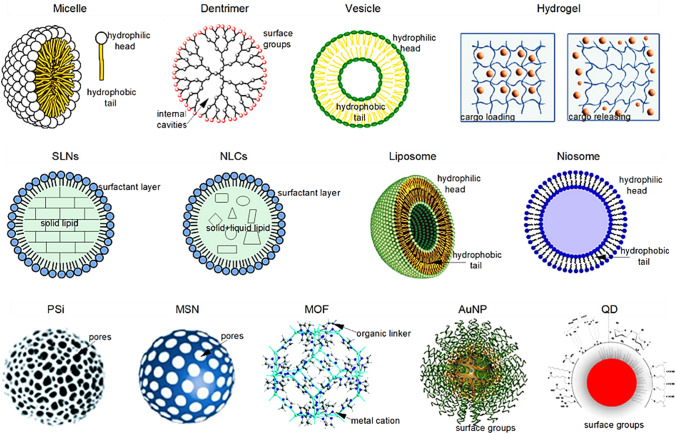Fig. 9.
Various nano system suitable to deliver CRISPR/Cas for therapeutics. The different approach combined with CRISPR/Cas aids in targeting various genetic and metabolic disorders. Lipid-based delivery systems investigate for lung cancer, heredity diseases, transthyretin amyloidosis, Alzheimer’s diseases, diabetes, leukemia, tyrosinemia, and hurler syndrome. Metal nanoparticle-based delivery systems investigate for Duchenne muscular dystrophy, X-fragile syndrome, Human Immunodeficiency Virus (HIV) infection, Human papillomavirus (HPV), autism spectrum disorders (ADS), central serous chorioretinopathy (CSCR-4), WHIM syndrome. Polymeric peptides-based delivery systems investigate for cancer, monosodium urate crystal, antibacterial resistance in MRSA, CML, hypercholesterolemia, intercranial tumor, osteosarcoma, septic shock, severe acute respiratory syndrome coronavirus 2 (SARS-CoV-2). Cell-fusion peptide-based delivery methods have been investigated for murine leukemia virus (MLV), Lesch-Nyhan syndrome and hyperuricemia, kidney, and urinary tract congenital abnormalities, and Enhanced Green Fluorescence Protein (E-GFP) tumors.
(Copyright Permission Elsevier 2021, Ref. 70)

